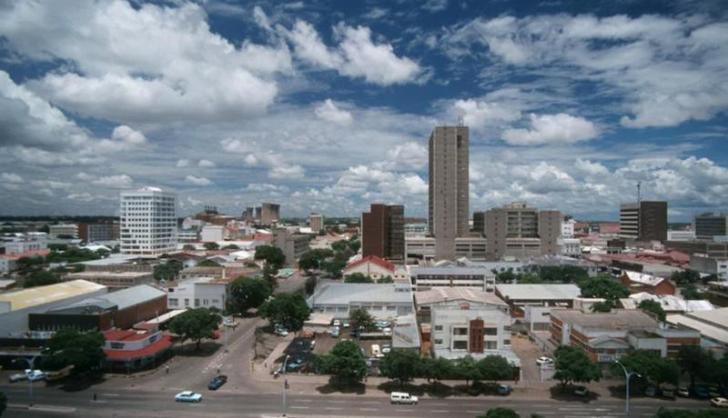News / National
Bulawayo City Council slashes shop, sports and social club rates
4 hrs ago | Views

In a significant move to alleviate the compliance burden on businesses, the Bulawayo City Council (BCC) has announced a reduction of shop licence fees and sports and social club rates by 30%. This decision comes in response to concerns raised by stakeholders and the need to review tariffs that were last gazetted in 2020.
According to minutes from a recent special council meeting, BCC finance director, Mr. Tennyson Mpunzi, explained that the 2019 tariffs had been overtaken by economic changes and were gazetted a year later. In 2022, when the tariffs were indexed to the US dollar, the lowest shop licence was set at US$1.09. However, a subsequent administration fee introduced in October 2021 saw the lowest shop licence fee rise significantly to US$238.11.
"Following an outcry on the level of tariffs charged from July 2022, it was proposed that the current USD tariffs be reviewed downwards using the gazetted 2019 tariffs (USD) as the baseline," said Mr. Mpunzi. He further explained that a 51% increase on the 2019 tariffs (USD 110.76) was expected to cover the increases in service costs, resulting in a 30% reduction in the lowest shop licence fee to US$167.01.
The council also addressed concerns over cemetery and community facility fees for 2025, with the proposed budget revisiting the gazetted tariffs to lower burial costs.
The new measures, which will take effect in the 2025 budget, include the reduction of business licence fees and sports and social clubs' property rates by 30%, while other proposed tariffs will remain unchanged.
In response to the concerns raised by the private sector, particularly from the Confederation of Zimbabwe Industries (CZI), Mr. Mpunzi said stakeholders had objected to the tariffs. Their primary argument was centered on the rebasing of RTGS tariffs to US dollars in June 2022. The CZI and other stakeholders argued for tariff reductions, citing the economic strain on businesses.
Despite objections, the council resolved to proceed with the tariff reductions, although the Ministry of Local Government and Public Works had advised further engagement with stakeholders. A special budget committee set up to review the revised budget failed to reach a consensus by the end of January, with the committee being reconstituted in late January to finalize discussions on the tariffs.
However, the business community raised concerns over the council's process, particularly regarding a 104% increase in labour costs for council staff, which rose from US$53 million in 2017 to a proposed US$108 million in the 2025 budget. CZI Matabeleland Chapter vice president, Mr. Clive Oxden-Willows, disputed the claims made by Mr. Mpunzi, asserting that a paper with documentary evidence was presented, but it was unclear whether the councillors had seen it.
The reduction of the shop licence fees and sports club rates is a welcomed relief for businesses in Bulawayo, but further discussions and transparency will be crucial to ensure that the concerns of all stakeholders are fully addressed in future budget proposals.
According to minutes from a recent special council meeting, BCC finance director, Mr. Tennyson Mpunzi, explained that the 2019 tariffs had been overtaken by economic changes and were gazetted a year later. In 2022, when the tariffs were indexed to the US dollar, the lowest shop licence was set at US$1.09. However, a subsequent administration fee introduced in October 2021 saw the lowest shop licence fee rise significantly to US$238.11.
"Following an outcry on the level of tariffs charged from July 2022, it was proposed that the current USD tariffs be reviewed downwards using the gazetted 2019 tariffs (USD) as the baseline," said Mr. Mpunzi. He further explained that a 51% increase on the 2019 tariffs (USD 110.76) was expected to cover the increases in service costs, resulting in a 30% reduction in the lowest shop licence fee to US$167.01.
The council also addressed concerns over cemetery and community facility fees for 2025, with the proposed budget revisiting the gazetted tariffs to lower burial costs.
The new measures, which will take effect in the 2025 budget, include the reduction of business licence fees and sports and social clubs' property rates by 30%, while other proposed tariffs will remain unchanged.
In response to the concerns raised by the private sector, particularly from the Confederation of Zimbabwe Industries (CZI), Mr. Mpunzi said stakeholders had objected to the tariffs. Their primary argument was centered on the rebasing of RTGS tariffs to US dollars in June 2022. The CZI and other stakeholders argued for tariff reductions, citing the economic strain on businesses.
Despite objections, the council resolved to proceed with the tariff reductions, although the Ministry of Local Government and Public Works had advised further engagement with stakeholders. A special budget committee set up to review the revised budget failed to reach a consensus by the end of January, with the committee being reconstituted in late January to finalize discussions on the tariffs.
However, the business community raised concerns over the council's process, particularly regarding a 104% increase in labour costs for council staff, which rose from US$53 million in 2017 to a proposed US$108 million in the 2025 budget. CZI Matabeleland Chapter vice president, Mr. Clive Oxden-Willows, disputed the claims made by Mr. Mpunzi, asserting that a paper with documentary evidence was presented, but it was unclear whether the councillors had seen it.
The reduction of the shop licence fees and sports club rates is a welcomed relief for businesses in Bulawayo, but further discussions and transparency will be crucial to ensure that the concerns of all stakeholders are fully addressed in future budget proposals.
Source - The Chronicle









































